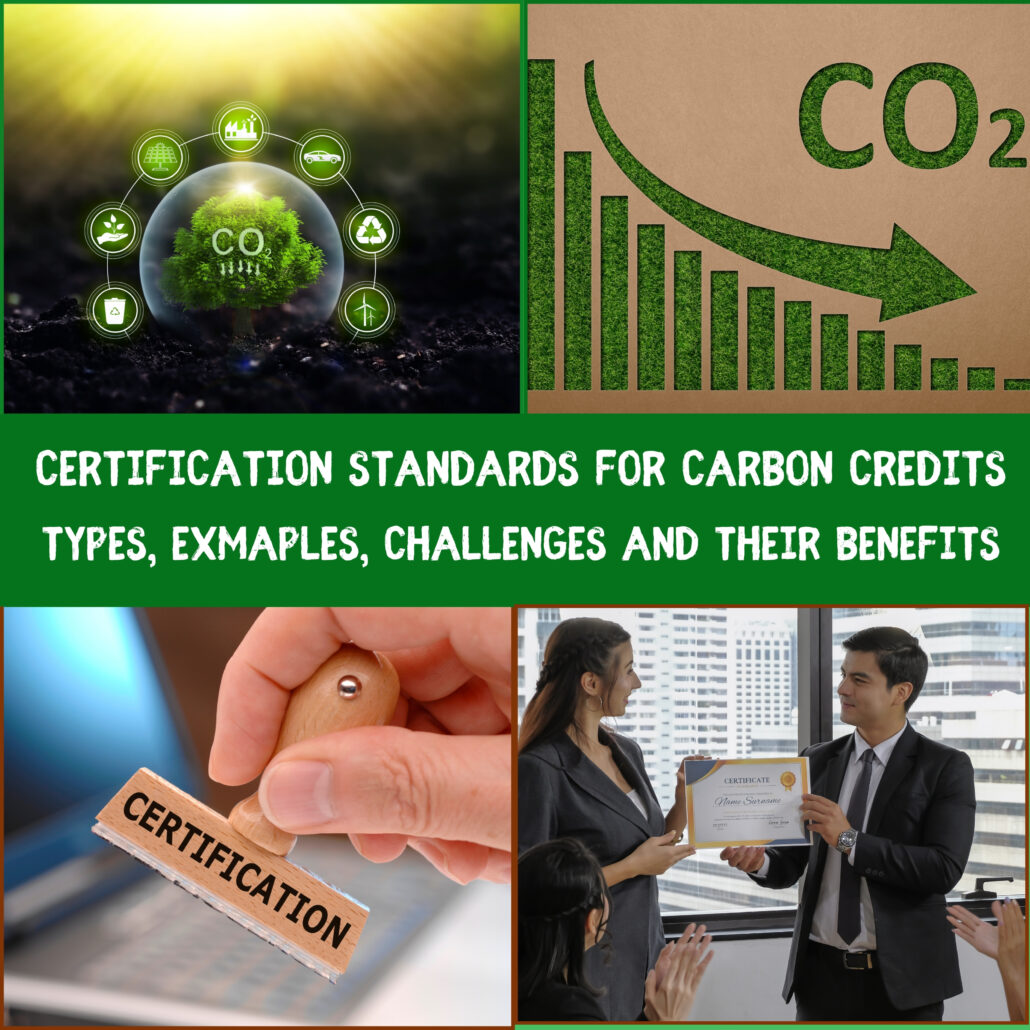
Carbon Certification Standards Types
Projects generating carbon credits must meet various standards to ensure their effectiveness and credibility:
- Verified Carbon Standard (VCS):
- Ensures that emission reductions are real, measurable, and permanent.
2. Gold Standard:
- Focuses on projects that not only reduce carbon emissions but also contribute to sustainable development goals.
3. Clean Development Mechanism (CDM) Credits:
- Under the Kyoto Protocol, emission-reduction projects in developing countries can earn these credits, each equivalent to one ton of CO2.
Understanding these various aspects of carbon credits and the markets they operate in is essential for effectively participating in carbon offsetting and trading activities.
Renewable Energy Credits (RECs)
Renewable Energy Credits (RECs) represent the environmental benefits associated with generating one megawatt-hour (MWh) of electricity from renewable energy sources instead of fossil fuels.
Key Examples
- Solar Energy:
- Mechanism: Electricity generated from solar panels, which convert sunlight directly into electricity.
- Benefits: Reduces reliance on fossil fuels, decreases greenhouse gas emissions, and promotes sustainable energy use.
- Wind Energy:
- Mechanism: Electricity generated by wind turbines, which convert kinetic energy from the wind into electricity.
- Benefits: Provides a clean, renewable source of energy that does not produce CO2 during operation.
- Biogas Energy:
- Mechanism: Electricity generated from biogas, which is produced by the anaerobic digestion of organic materials such as agricultural waste, manure, or food waste.
- Benefits: Reduces methane emissions from organic waste, provides a renewable energy source, and can improve waste management practices.
Benefits of Renewable Energy Credits (RECs)
- Environmental Impact: By supporting the development of renewable energy projects, RECs help reduce greenhouse gas emissions and mitigate climate change.
- Market Demand: Creates financial incentives for renewable energy projects by providing an additional revenue stream, making these projects more economically viable.
- Energy Transition: Facilitates the transition from fossil fuel-based energy systems to cleaner, renewable energy sources.
- Consumer Choice: Allows consumers and businesses to support renewable energy even if they cannot generate it themselves by purchasing RECs to offset their electricity consumption.
How RECs Work
Mechanism:
- Generation: A renewable energy facility generates electricity and creates RECs for each MWh of electricity produced.
- Certification: RECs are certified by independent organizations to ensure they meet certain standards and represent genuine renewable energy generation.
- Sale and Purchase: RECs can be sold separately from the physical electricity. Utilities, businesses, and individuals can purchase RECs to claim the environmental benefits of renewable energy.
- Retirement: Once a REC is purchased, it can be “retired” to prevent double counting, ensuring that only the purchaser can claim the associated environmental benefits.
Challenges and Considerations
- Additionality: Ensuring that the purchase of RECs leads to additional renewable energy generation, rather than just reassigning existing renewable energy attributes.
- Verification: Accurate tracking and verification of RECs to prevent fraud and ensure transparency.
- Market Fluctuations: Prices of RECs can vary based on supply and demand, which may affect the stability of funding for renewable energy projects.
- Consumer Awareness: Educating consumers about the benefits and mechanics of RECs to increase participation and demand.